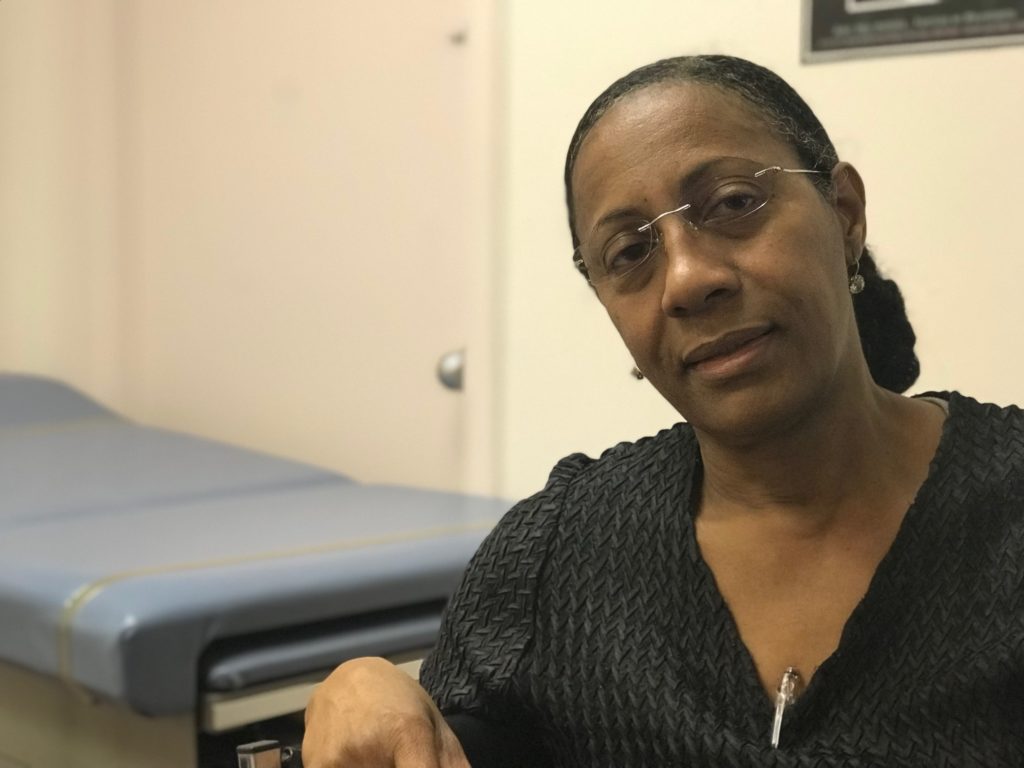Provider Profile | Dr. Sherill Purcell

What do the West Indies, an Armadillo, a Dove, and Care For the Homeless (CFH) have in common? If you guessed the small island nation of Grenada, you’d only be half right. The other half of the answer pertains to Granada native, Dr. Sherill Purcell, who recently celebrated her 28-year anniversary with CFH.
Dr. Purcell came to the United States when she was 21 and settled with her family in Kings County, Brooklyn, NY. She completed undergrad at CUNY-Brooklyn and subsequently graduated from New Jersey Medical School in Newark, NJ. Her early years at CFH were spent at a family shelter in Brooklyn. Purcell now splits her time as a pediatrician between CFH’s Citadel Open Access Health Center in Queens, NY and her own private practice.
Even now in 2019 though, after her long career in medicine, she’s still meaningfully influenced by her native roots; especially when it comes to working with underserved patient populations. Purcell commented, “We didn’t have much [in Grenada]. So, that background is always with me.”
Unfortunately, as is the case with many patients utilizing CFH’s services, there isn’t a whole lot of trust between them and medical professionals. As of 2018, 27% of CFH patients were uninsured and 85% were below the federal poverty line. These circumstances lead those experiencing them, to believe that they’ll be turned away by doctors, treated poorly by the system, and/or that they just can’t afford health care.
Additionally, these conditions push health to the bottom of their priority list. Food and housing insecurity are tremendous burdens that end up taking precedence, even when someone is feeling sick. This leads to appointment no shows and the unnecessary exacerbation of treatable, chronic diseases.
In situations like these, trust is among the most essential pillars a provider must nurture in their relationship with their patients. When asked about how she cultivated trust, Dr. Purcell specifically recounted the story of a young mother. She reminisced, “She was very prim, proper, and articulate. Sometimes you think you understand people, but if you’ve never been homeless, you don’t understand what it’s like to be an adult and have people telling you what to do all the time. I gave her respect.”
“Later, the mother told her social worker, ‘That pediatrician, she looked me in my eyes and made me feel like a human being.’ It became a lesson to me. And it’s so simple, but that feeling of being validated is so important to so many people.”
“Now I always think of her,” Purcell continued. “I understand that I can’t solve all the problems a patient may have, but Ican always listen to what they have to say and pay attention. That helps their state of mind. It’s supportive and I was happy that I could give her that. And even more so, that she acknowledged it, so that I could be conscious of it moving forward.”
For Dr. Purcell, overcoming challenges of this kind are just part of the day. She commented, “At my age, a lot of things aren’t challenges to me. I see them as evolutions you must adjust to. Some things might frustrate me, but I don’t focus on the difficulty. I focus on how I can fix it.”
Homelessness is a condition, not a characteristic. It may be a challenging one to treat, but as Dr. Purcell says, “We adjust.” So, no matter how severe, complex, or numerous the conditions of a patient may be, they are always treatable. High quality, accessible health care is an essential step on the road to ending homelessness. Acknowledging this fact sends a message that those experiencing homelessness are heard, helped, and validated.
